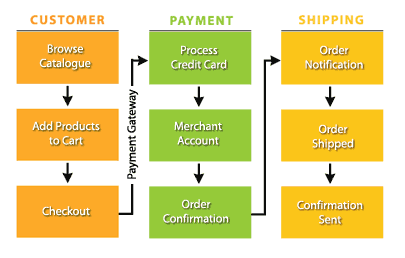One of the most happening trends in the market today is E-Commerce. With the rapid increase in mobile penetration and internet usage in the market, this sector is witnessing a spectacular growth in India. As per the report of Goldman Sachs, it is expected that by 2030 E-Commerce industry will cross the landmark figure of $300 billion.
One of the key factors which have provided a major boost to this sector is the introduction of GST (Goods and Services Tax) Bill by the Government of India. After implementation of new regulations under GST, it is expected that the issues related to logistics will also be solved. This will ultimately contribute towards the growth and development of this sector.
Nobody can deny the fact that smart phones are the latest fad among the current generation. These apps are equipped with large number of apps which are useful to ease of the day to day activities. Most of the E-Commerce portals have understood this current trend of the market. Thus apart from maintaining a captivating website, they have launched their mobile apps. This noteworthy step taken by them has contributed towards increasing their popularity among the masses.
To allure the tech savvy current generation, these E-commerce portals have provided flexible mode of payment. This tactics have indeed produced the desired effect. It can be noted that in 2015, 78% percent of shopping queries were made via mobile apps as compared to 46% in 2013. This figure bares testimony to its ever increasing demand in the market.
Major Components of E-Commerce Portals and their roles
E-commerce is a business of trust. A person opts for online purchase simply by trusting the specifications provided on the portal. Buyers do not get the chance to personally access the quality of the product while making the investment. Thus in order to win the confidence of customers and taste success in the business, the first ingredient is to establish a strong coordination among the various components of this sector.
Generally, the E-commerce industry comprises of five main components viz. seller, buyer, payment facilitator, courier service provider and e-commerce portal. In order to ensure success of this industry, all these components must share an effective coordination.
A seller is the one who collaborates with any e-commerce portal to sell his products and hence enhance customer base. It is a very important component of any e-commerce portal. Depending upon the quality of product sold by any seller, the popularity of any portal depends. Thus, while collaborating with any vendor or seller, an e-commerce portal should takes utmost care. The portal earns commission for every purchase made through it. Nowadays, not only reputed brands, but also many new and local vendors ties up with a portal to promote sales for their brand. This helps any business entity to popularize its brand across the country at a very fast pace which may not be possible in normal case.
Buyers form the base of any business house. More the buyers more will be the profit. The E-commerce portals are no different to this rule. Thus all portals employ different steps to drive in more traffic to their portals. They offer different discounts to allure customers to visit their portals. For any portal, satisfaction of its customer is the first and foremost concern. Thus, they always try to sell their products in the cheapest possible rate without compromising the quality.
Another important factor that decides the success of any online business portal is the payment modes. It is often observed that customers opt to choose the medium which is equipped with a secure and simple payment facility. They tend to visit the portal again and again once they get satisfied with the service. Thus, for any e-commerce portal to grow, one of key factors is to collaborate with a payment facilitator with simplified and secure payment gateways. Now, with the increase of internet in the market, almost all reputed banks in the country offer different online payment methods. With the discovery of credit and debit cards, the ways of marketing has changed a lot. There are multiple types of payment options like through Credit/debit card, net banking, cash on delivery, payment wallet, UPI etc.
Last but not the least, one of the most important factors that help to make a lasting impression on the mind of any customer is the courier service. Fast and on time delivery is always appreciated by any customers. Thus all e-commerce platforms must take utmost care while choosing its courier partners. Track record of any courier service provider must be carefully studied before finalizing its services. Generally all portals try to hire the services of the best courier service provider of any region.
How does transaction mechanism work in e-commerce?
Since e-commerce is a big world and has grown rapidly, the growth of transaction facilities is also going high. Today, there are several types of transaction that has made everything a lot easier. Since e-commerce deals with buying and selling of products through internet, the payment systems have become much easier due to a lot of use of net banking and shopping. E-commerce facilitates electronic payment for transactions done online.

Transaction
flow in e-commerce